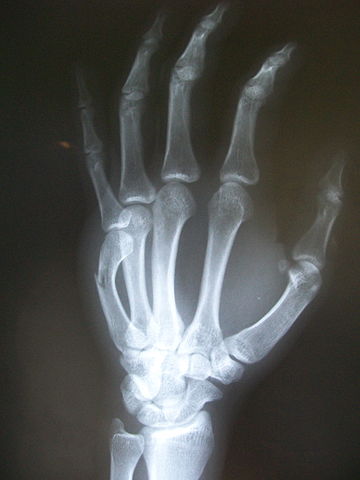Hand Fractures: Signs, Symptoms, and Treatments
We use our hands for nearly everything, and so they also bear the brunt when it comes to accidents – trips and falls, falling items, and other instances can lead to hand fractures.
Hand fractures can be minor or major and can affect the middle of a bone or the end. In all cases, they can be quite painful, and they can limit the use of your hands. In this post, we’ll explore:
- How do common hand fractures happen?
- How do you know if your hand is broken?
- Do hand fractures require surgery?
- Recovery from hand fracture surgery
- How Michigan Surgery Specialists can help you heal
Common causes of hand fractures
Often, hand fractures are related to falls, crush-type injuries, twisting injuries or other impact to the hand.
Many injuries come from stretching out your hands to break your fall. This can cause a break in the fingers, hand and wrist. One common fracture caused by a fall is a scaphoid fracture.
Sports are a common cause of fractures from falls and twists. Another common type of fracture is a boxer’s fracture. The boxer’s fracture usually occurs when somebody hits something with a closed fist, fracturing the 5th knuckle of the hand.

Job-related hand fractures are also common, especially at jobs involving tools, machinery, and other implements that could crush the hand.
How can you tell if your hand is broken?
It’s very common for people to wonder if they’ve broken their hand, or if it’s just a sprain that will get better on its own.
Understanding the signs and symptoms of hand fractures will help you determine if you need to seek medical attention. However, the only definitive way to know if your hand is broken is with an x-ray. At Michigan Surgery Specialists, we can provide an accurate diagnosis.
Some of the most common symptoms of hand fractures include:
- Pain and tenderness
- Swelling
- Pain that becomes worse when gripping or moving
- Numbness in fingers
- Inability to move finger(s)
- Bruising
- Deformities (fingers bent at wrong angles, etc.)
If you think that your hand could be broken, it’s always a good idea to get it examined. Yes, it could just be a sprain. But if a fracture goes untreated, it may lead to other complications down the road.
Do Hand Fractures Require Surgery?
In most cases, hand fractures do not require surgery in order to heal. After being diagnosed through an X-ray, the bones of the hand may need to be set. Then the hand will be immobilized with a cast, split, or a brace.
Usually, you will have a second appointment scheduled within the first two weeks of healing to ensure that the ends of the bone are properly aligned. Total healing time may be anywhere between three and six weeks depending on the severity and location of the fracture.
However, there are instances when surgery is necessary for hand fractures. Very serious fractures in which the bone has fragmented may require the use of plates and screws to hold the pieces in position during the healing process.
In some injuries, screws and wires can be inserted without the need for open surgery. However, in more serious cases, such as open fractures where pieces of bone have pierced the skin, it will be necessary to make incisions in the skin where the bones need to be aligned.
If a bone has been completely crushed to the point that it cannot be repaired, a bone graft may be necessary
You will need to wear a cast for three to six weeks to protect the bones while they are healing. Eventually, you’ll be able to begin exercising to strengthen their hands and regain their lost range of motion.
What Types of Hand Fracture Complications Are Possible?
While surgery will help to prevent many potential complications, it is still possible to experience others. Some of the most common complications of hand fractures include:
- Loss of range of motion in the fingers
- Loss of strength in the hand
- Stiffness in fingers and hand
Many of these complications can be treated with hand therapy.
In some instances, additional hand surgery is necessary to alleviate some complications. For instance, hardware may need to be removed. In some cases, you may need to have scar tissue removed.
What Is the Recovery from Hand Fractures Like?
Recovery from hand surgery generally requires multiple weeks wearing a cast. Additional surgeries may be necessary, but this is not always the case.
You can expect up to six weeks of wearing a full cast from fingertips to the forearm or the elbow in order to keep the bones in the hand immobilized. After the case is removed, X-rays will be taken.
How Can Michigan Surgery Specialists Help?
At Michigan Surgery Specialists, hand surgery is one of our primary specialties. Our highly-qualified hand surgeons offer industry-leading experience and education in handling a wide range of hand surgeries, including treating hand fractures.
Contact us today to schedule an appointment with one of our specialists.
Meet our physicians



